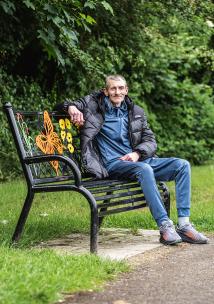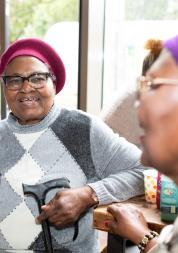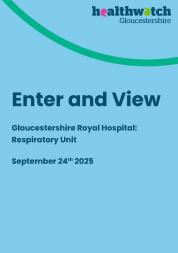Report: Understanding people's experiences of hidden homelessness

What is 'hidden homelessness'?
For the purposes of this report, ‘hidden homelessness’ includes situations such as:
- Living in temporary accommodation that isn’t meeting a person's needs
- Sofa surfing
- Staying in unsuitable accommodation
- Sleeping in cars, tents, sheds, or other informal infrastructure
- Rough sleeping in rural areas or out of sight
We heard from individuals and organisations who deal with homelessness.
Based on their insights, we've made recommendations to enhance access to health and social care services, improve the wellbeing of those experiencing hidden homelessness, and create a more inclusive, sustainable, support system in Gloucestershire.
Download our full report below.
Downloads
The property is in a severe state of disrepair, with black mould affecting all rooms, recurring despite the client’s ongoing attempts to treat it.
Key messages
- Experiencing hidden homelessness often exacerbates pre-existing mental and physical health conditions.
- People who have experienced domestic abuse or are in recovery from substance dependency can be re-traumatised if housed in environments that may trigger past experiences.
- The homeless healthcare service in Gloucester is highly regarded by many of those who have accessed it, but this leaves those in other areas, particularly rural communities, at a disadvantage due to limited awareness.
- Difficulties in obtaining medical evidence to support housing and benefits claims - such as high costs and some GPs refusing to provide it - can significantly delay access to housing support.
- People with pets often face challenges accessing healthcare appointments if they cannot bring their pets with them, this can lead to missed opportunities for care and treatment.
- Advocacy support is critically lacking, leaving individuals struggling to navigate complex systems. Many fall through the gaps.
- The term "voluntarily homeless" is misleading and potentially harmful. It wrongly suggests that individuals choose homelessness or refuse support, while ignoring systemic barriers such as domestic abuse or unsafe housing.
One Gloucestershire Integrated Care System said:
"Homelessness is certainly more prevalent than official statistics may suggest. The county’s annual rough sleepers count has routinely included only individuals observed on the streets, not those "hidden", distorting the true number of individuals who are homeless. We also know that some people may wish to "stay away" from individuals who may be using alcohol or drugs and thereby choosing homelessness for themselves over a home in shared accommodation offered to them under the duty of the statutory authority.
"Therefore, we are pleased that you have highlighted the definition of what hidden homelessness includes. We recognise that the numbers are not getting smaller; in fact they appear to be increasing.
"We have provided responses to the Report’s overall recommendations" (please see our report for the full response).
Image credit: Centre for Homelessness Impact / Christopher James Hall Foundation

